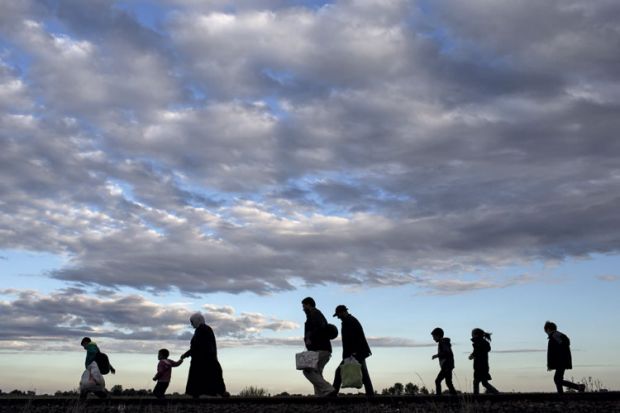Universities across Europe have been urged to do more to admit refugee students.
At a meeting of the European University Association’s Council on 23 October, the presidents of 33 national organisations for university leaders adopted a statement on refugee students and academics.
It calls on universities and policymakers to ensure refugees have information on educational opportunities, provide language teaching to enable them to study and shorten “waiting periods” to higher education and related financial support.
Universities should also ensure there are flexible conditions, procedures and processes for the recognition of degrees and diplomas, periods of study and prior learning, in line with the Lisbon Recognition Convention, it adds.
It also asks universities and governments to offer funding support for refugee students and scholars, with additional means made available from national and European sources for higher education institutions that engage in this process in the form of bursaries, grants and structural support measures.
Universities had already done much to help refugees, the EUA said.
In some cases, refugees are now housed on university campuses, which have also offered services such as language training, cultural and sports activities and access to information.
“But universities can do much more”, says Rolf Tarrach, the EUA’s president and former rector of the University of Luxemborg.
“It is to be expected that a considerable number of the refugees entering Europe are either students who have had to break off their studies or young people likely to qualify for access to higher education," he said, adding those qualified to apply for entry to higher education should have the chance to progress.
“Access to higher education is surely one of the best ways of helping student refugees to gain qualifications, enabling them to seek employment and pursue a career and thus build a life for themselves and their families,” added Professor Tarrach.
Register to continue
Why register?
- Registration is free and only takes a moment
- Once registered, you can read 3 articles a month
- Sign up for our newsletter
Subscribe
Or subscribe for unlimited access to:
- Unlimited access to news, views, insights & reviews
- Digital editions
- Digital access to THE’s university and college rankings analysis
Already registered or a current subscriber? Login




